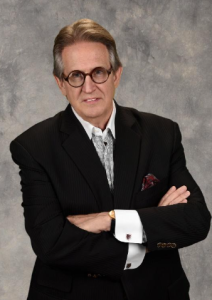Meet our experts: Peter C. Yesawich

Peter C. Yesawich is the Chairman of Yesawich Holding, LLC, and co-founder/Vice Chairman Emeritus of MMGY Global, the world’s largest integrated marketing communications company serving clients in the travel, leisure, and entertainment industries from 11 offices across the Americas, Europe, and the Middle East.
Renowned as a leading authority on the evolving habits, preferences, and intentions of travelers, Yesawich frequently comments on travel trends in both domestic and international media. His extensive client list includes prominent destinations and brands such as the Bahamas, Bermuda, Costa Rica, Dominican Republic, Honduras, Mexico, AMResorts, Fairmont Hotels & Resorts, Hilton International, Leading Hotels of The World, Outrigger Hotels & Resorts, Ritz-Carlton Hotel Company, Sandals Resorts, Trump Hotels, Atlantis Paradise Island, the Breakers, the Broadmoor, Gaylord Hotels, La Costa, New York Palace, Wynn Las Vegas, Universal Orlando Resort, Walt Disney Parks & Resorts, .
Yesawich has received numerous industry awards and previously served on the board of directors of the Travel Industry Association of America. He was also a Visiting Associate Professor of Marketing at Cornell University and co-authored “Marketing Leadership In Hospitality” published by Prentice-Hall and “Hospitable Healthcare” published by Indigo River Press.
From 2010 to 2020, Yesawich served as Chief Growth Officer of Cancer Treatment Centers of America® (CTCA), a national network of specialty hospitals and outpatient clinics in the United States treating adults with complex or advanced-stage cancer. Under his marketing leadership, CTCA became the most recognized national cancer treatment provider in the U.S. and the third most positively perceived hospital system in the country, following Mayo Clinic and Johns Hopkins Medicine.
Yesawich holds three degrees from Cornell University, including a doctorate in psychology, and is a graduate of the Advanced Management Program at Yale.
We thought it was wonderful to talk to you about tourism industry and how it’s balancing the need for economic growth in a changing world, as well as the imperative in reducing their environmental footprint and making a difference in acting as the stewards for the next generation? We wanted to see your reaction and wanted to get your insights on those.
I still conduct a national survey called the Portrait of American Travelers, which I believe is the longest continuous examination of lifestyle and travel preferences in America. This survey provides a comprehensive database on various subjects, including sustainability.
We included questions on sustainability because many clients were curious about the importance of being LEED certified when building a new hotel, or having policies that promote sustainability for ecotourism destinations. We started tracking awareness and motivations related to these issues.
What we discovered, and what continues to be disappointing for many, is that although the stated importance of environmental issues among travelers has increased over the past 10 to 12 years, this awareness has not translated into behavior. Travelers acknowledge the importance of things like LEED certification and environmental sensitivity, but when asked if they are willing to pay a premium for suppliers who demonstrate these qualities, the numbers drop significantly.
Only about one-third of respondents admit they are prepared to pay a premium, and even then, they are generally willing to pay a very modest premium—less than 10%. So, despite increased sensitivity to environmental issues, it hasn’t become a standard consideration in travel decisions. For instance, when booking flights, most travelers still opt for the cheaper option over one that offers carbon offsets.
The conclusion we’ve drawn is that while it’s essential for destinations to acknowledge and address environmental issues to remain competitive, they shouldn’t expect to charge a premium for these efforts because the market is not yet willing to pay for them.
For example, if you’re booking a flight from Boston to Cancun and you see American Airlines offering a deal while Copa Airlines offers carbon offsets, most people will choose the cheaper option, even if they care about sustainability. This shows that the concern for environmental issues often doesn’t translate into financial behavior.
